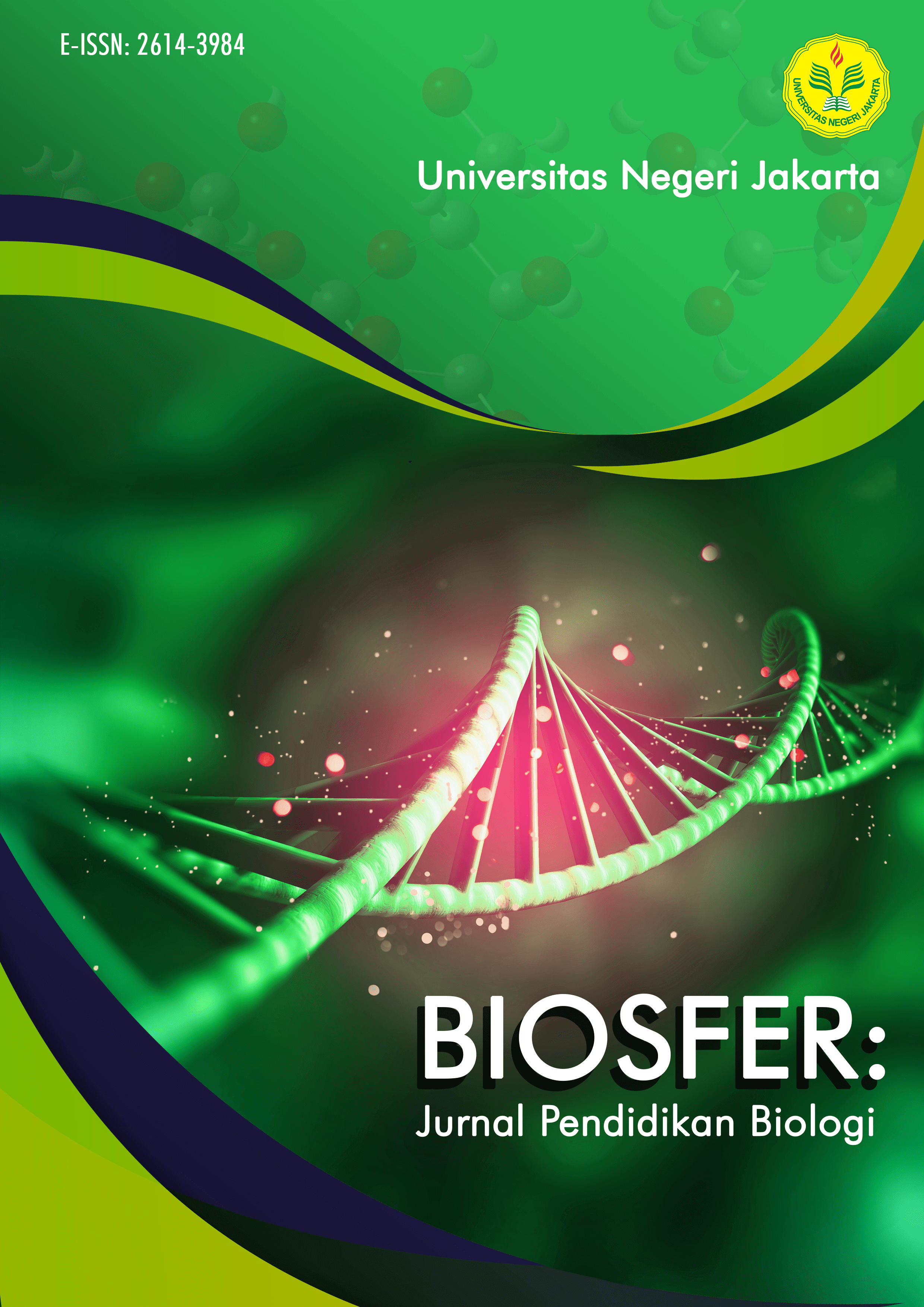Enhancing students’ thinking skills through project-based learning in biology
DOI:
https://doi.org/10.21009/biosferjpb.v13n2.230-249Keywords:
Cognitive Skills, PjBL, Question, StatementAbstract
This research aims to enhance students' thinking skills (TS) through a project-based learning (PBL) intervention in two cycles of classroom action research (CAR) on the topic of the Ecosystem. TS was determined by the quantity and quality of the students' questions (SQ) and statements (SS), which were determined based on Bloom's taxonomy. The research target was students in grade X (N=31) of one social science class at a public high school in Surakarta. Their TS were rated as low during the Pre-cycle. Based on their verbal activities, the students were categorized into five active (A) and non-active (NA) groups (A-1, A-2, NA-1, NA-2, and NA-3). The NA students were more engaged after the two cycles of CAR. Although the A-1 and A-2 students posed more SQ and SS than the NA students, some of the NA-1, NA-2, and NA-3 students performed positively. In the Pre-cycle, only the C1 and C2 cognitive levels were detected, mostly as factual and conceptual. During the CAR, however, C4, C5, and C6 were found as procedural. In Cycle II, we can find a few examples of metacognition. Overall, this research has shown that PBL can be used to increase student learning engagement. They become active communicators. There was evidence that the quality of students' questions and statements improved to the level of C6 and metacognition. Hopefully, further research can be conducted on the impact of grouping strategies during PBL activities by purposively combining high-achieving students or actively questioning and giving their peers statements in the opposite situation.
References
Gall, Meredith D., Gall, JoyceP & Borg, Walter R. (2007). Educational Research An Introduction. Boston: Pearson Education,Inc.
Heather Staker & MichaelB. Horn. (2012). Classifying K-12 Blended Learning.
J.Drysdale,et.al.(2013).An Analysisof Research Trends in Dissertation and Theses Studying Blended
Learning.The Internet and Higher Education.Volume 7,pg.90-100.
Jean Elise Prescot, et.al. (2018). Elementary School-wide Implementation of A Blended Learning Program for Reading Intervention. The Journal of EducationalResearch.Volume111, Issue 4, pg. 497-506.
Octaviany Widyaningsih. (2010). Pemanfaatan Lingkungan Sebagai Sumber Belajar IPA di SD Interaktif Harum Mulia Klaten. Yogyakarta: Universitas Negeri Yogyakarta.
Suhartono. 2016. Menggagas Pendekatan Blended Learning di Sekolah Dasar.Prosiding Temu IlmiahNasionalGuru(TING)VIII.
Undang-undang Republik Indonesia.No.14 Tahun 2005 tentang Guru dan Dosen.
Downloads
Published
How to Cite
Issue
Section
License
The Authors submitting a manuscript do so on the understanding that if accepted for publication, copyright of the article shall be assigned to Biosfer: Jurnal Pendidikan Biologi (Biosferjpb) and Departement of Biology Education, Universitas Negeri Jakarta as publisher of the journal.



